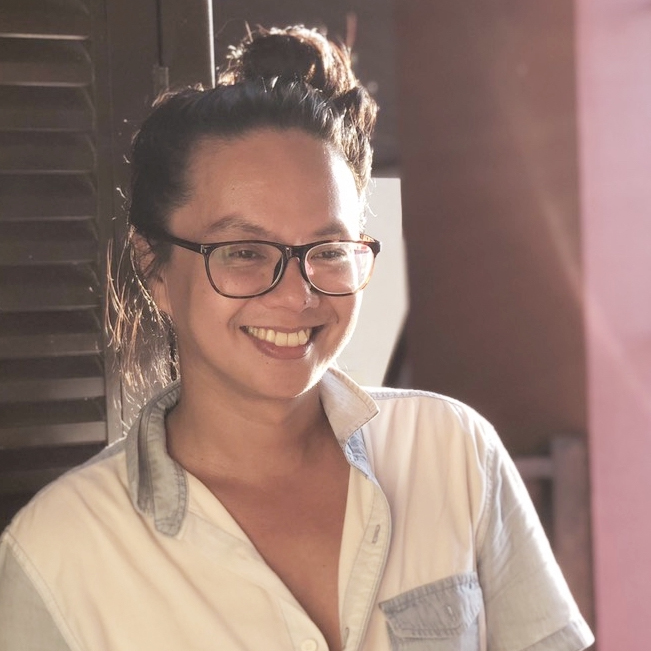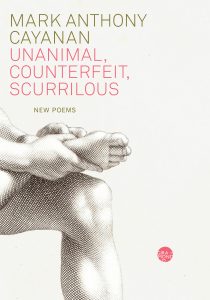Mark Anthony Cayanan: a note on Unanimal, Counterfeit, Scurrilous
I was mainly preoccupied with two things when I was working on Unanimal, Counterfeit, Scurrilous. The first is more obvious: the collection plays out my obsession with Thomas Mann’s Death in Venice, which I was initially drawn to as an undergraduate because of how opaque its object of desire was (I didn’t fully realise back then that objects of desire in literature were almost invariably rendered as opaque entities) and how a plot marked by stasis – the entire novella is pretty much just a disastrous vacation – serves as a front for the implosive trajectory of the protagonist’s inner life. Throughout the process of engaging Mann’s narrative in a conversation, I was mindful that I was coming from a position that isn’t entirely compatible with the rarefied conditions of his queer tragedy.
The second is just as important: in the pre-pandemic era when I was working on the poems, the Philippines was, and continues to be, in the midst of a protracted campaign against illegal drugs. Initiated by a populist president, the campaign has been used to justify the flagrant violations of human rights committed with impunity by agents of the state, including extrajudicial killings of suspected drug users, peddlers, journalists, and political opponents of the government; the curtailment of press freedom; and the red-tagging of activists and representatives of Indigenous groups. Like many other artistic producers, I felt the compulsion to channel through my work the rage and despair I kept feeling in the face of such undeniable state-sponsored violence – but I honestly didn’t know how to participate in a socially necessary public discourse, when doing so also felt like being conscripted into a literary economy in which activism is transmuted into cultural capital. Moreover, I was an international student at the University of Adelaide; and I couldn’t quite shake off the suspicion that there was something mercenary about obtaining a PhD out of making the atrocities in my country legible to what was immediately a foreign audience (they were barely legible to me).
I dealt with this paralysis through subterfuge: one of my fundamental acts of creation was appropriative. Like a modernist or magpie, I stole conflicts and words, embedding passages into poems or actually creating drafts out of swathes I cobbled together from various sources. I imbricated texts detailing the political situation in the Philippines with Death in Venice, of course, as well as other materials whose presence enacted, albeit spectrally, the intersectionality of the subject-position from which the poems emerged. Instead of unambiguously deploying my work as political content, I attempted, through the plagiarism-adjacent methodology, to privilege the potentialities of the poem as a site of struggle while also demurring on it being a purveyor of radicalising motion. By nestling the social relationalities informing the collection within its climate of interiority, it is an anxious and queer performance of abeyance.


